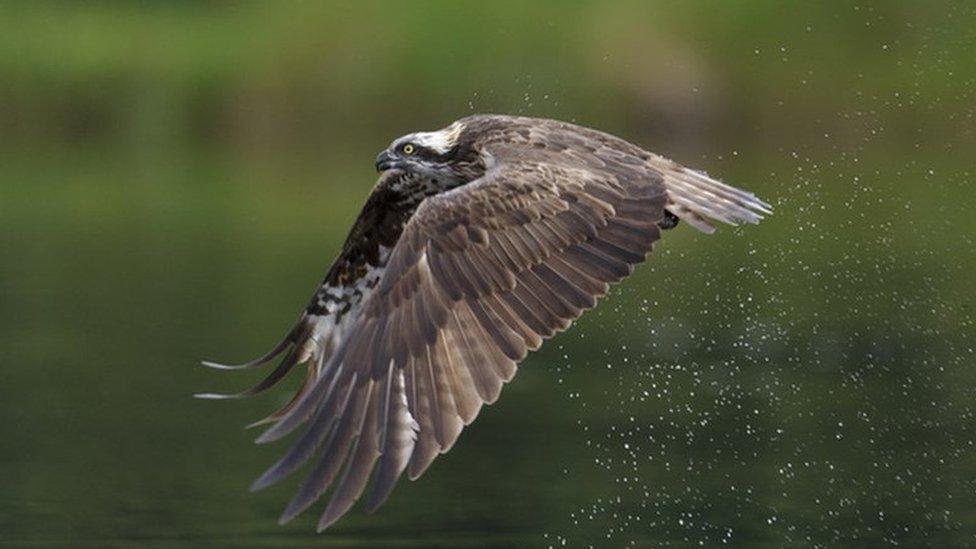Ospreys: Chicks born to county's first recorded breeding pair
- Published
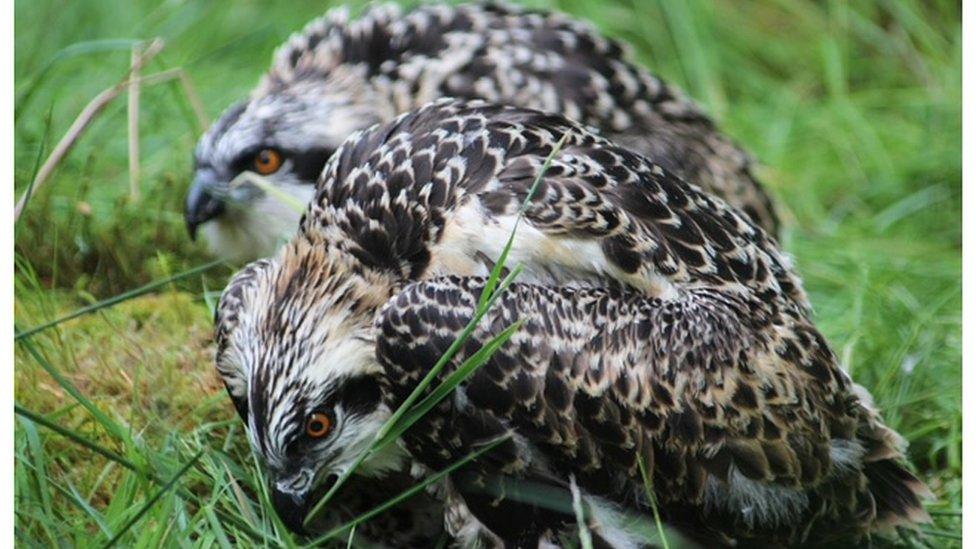
Pictures of the chicks were unveiled for the first time on Friday
The establishment of the first breeding pair of ospreys in Yorkshire for hundreds of years "is nothing short of a miracle", a conservationist has said.
The young adult pair, at the Bolton Castle Estate, near Leyburn, in North Yorkshire, have produced two chicks - a male and a female.
Ospreys have never been recorded as breeding in the county since records began in 1800.
It follows a reintroduction programme at the site.
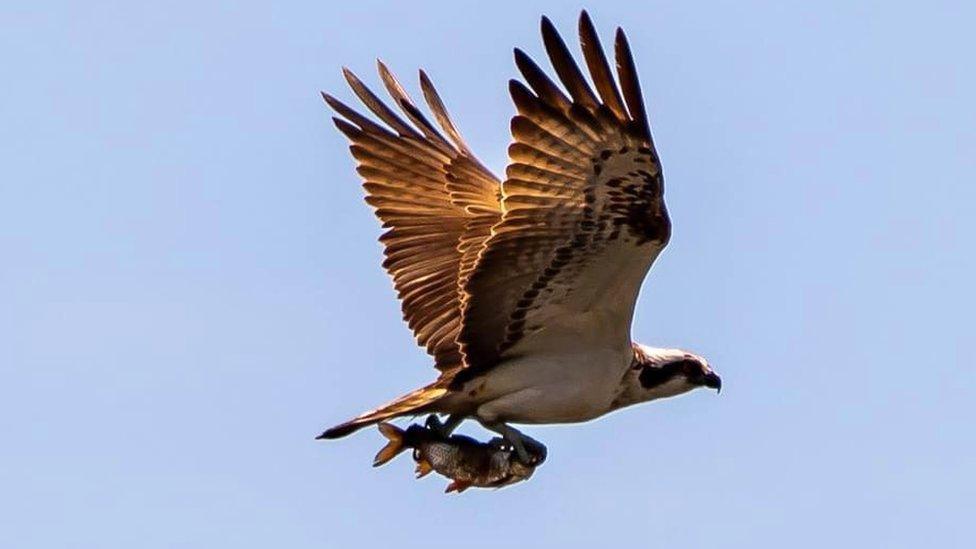
It comes after the establishment of the first breeding pair of ospreys in Yorkshire for hundreds of years
Sacha Dench, who is known as "the human swan" for her journey following Bewick's swans from Arctic Russia to the UK by paramotor, visited the site as part of an expedition tracking the migration route of ospreys from Scotland to Africa.
During the visit, Ms Dench met Tom Orde-Powlett, son of Lord Bolton, and others who had helped to encourage the birds to nest.
"I am incredibly honoured to be able to visit the very first osprey breeding pair in Yorkshire," she said.
"What Tom and his colleagues have achieved is nothing short of a miracle."
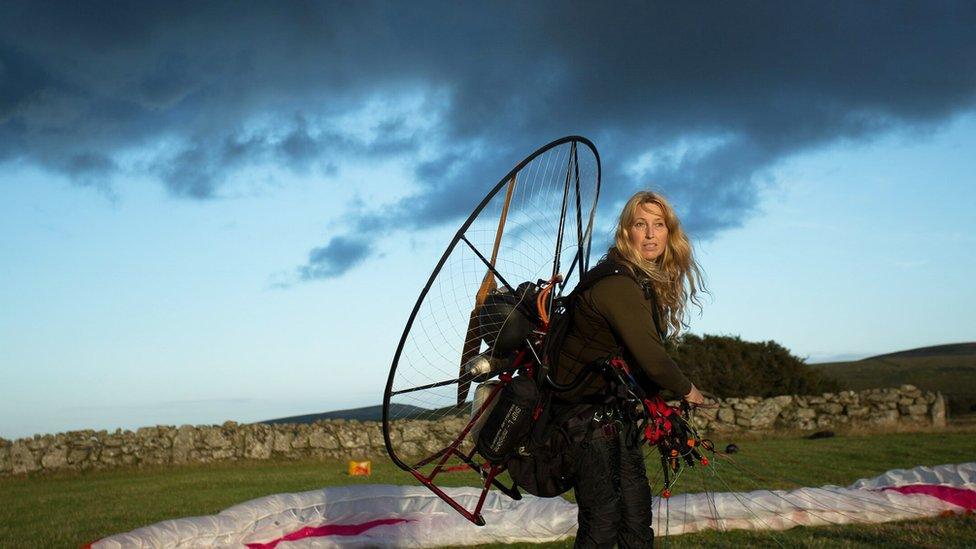
Sacha Dench, who is known as "the human swan", is part of an expedition tracking the migration of ospreys
Ospreys were generally thought to be extinct in the UK until returning initially to remote parts of Scotland from Scandinavia in the 1950s.
However, Mr Orde-Powlett said: "Over the last twenty years or so I had seen ospreys with increasing frequency, and in 2019 what we thought might be a pair were spotted.
"I decided to stock two ponds near where we had seen them with some trout, hoping that a good food source would keep them here and also reduce pressure on wild fish," he said.
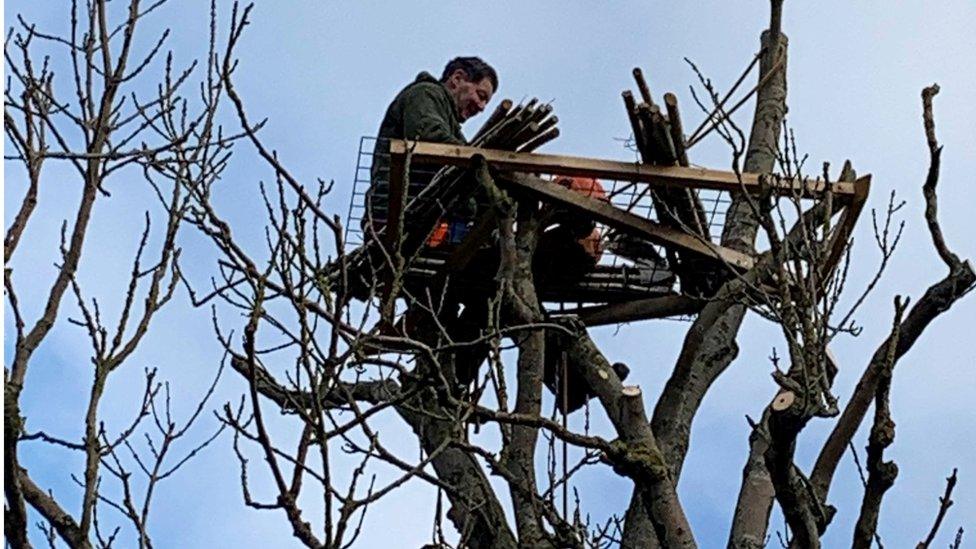
Towers were built on the estate to encourage the birds to nest
The estate also erected platforms in a bid to encourage the birds to nest.
"We were overjoyed when they eventually built a nest on one and we saw the hen bird apparently sitting on something - we hoped an egg - in May, which would mean potential hatching in mid-June," Mr Orde-Powlett said.
"We were pretty confident of one chick but when we went to ring them we were thrilled to discover two, one of each sex."
The Flight Of The Osprey expedition is tracking the birds of prey, external as they travel 6,213 miles - almost 10,000km - from the north east of Scotland to Ghana through 14 countries.
Ms Dench said the expedition aimed to "shine a light" on the efforts organisations and individuals like Mr Orde-Powlett were making to address the challenges faced by ospreys and other migratory birds.
"In the long run we humans can do so much to help ospreys and a wide range of other birds and animals whose lives, like our own, depend on healthy, unpolluted land and oceans," she added.
Natural England, the Cumbria Raptor Study Group and the Lower Ure Conservation Trust were also involved in the programme on the Yorkshire estate.

Follow BBC Yorkshire on Facebook, external, Twitter, external and Instagram, external. Send your story ideas to yorkslincs.news@bbc.co.uk, external.
- Published29 April 2022
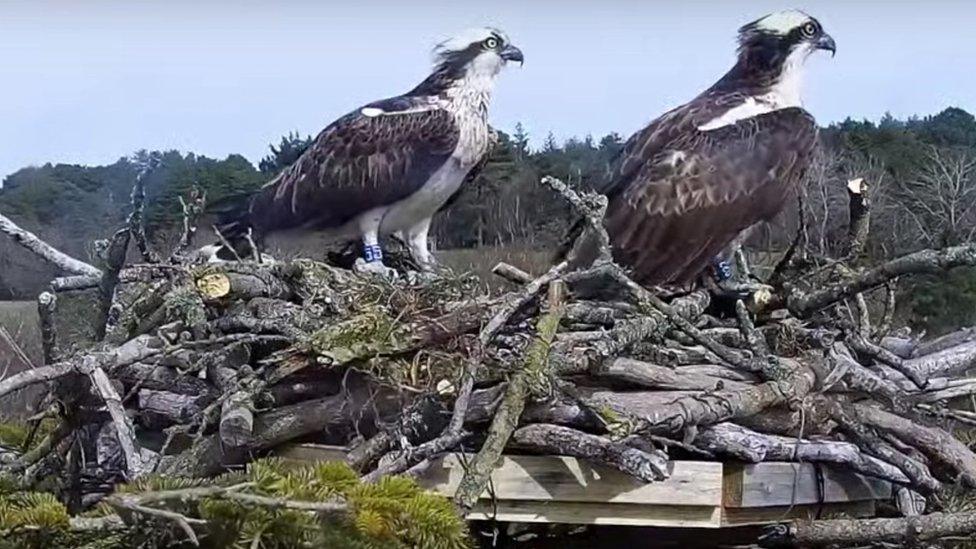
- Published25 April 2022

- Published5 August 2021
